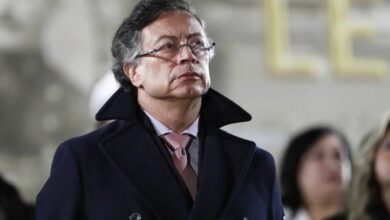Nayib Bukele Claims Victory in Salvadoran Elections

Before official results, Salvadoran President Nayib Bukele declares a ‘record’ election win, defying the constitutional re-election ban.
Controversial Victory Declaration
The latest electoral process in El Salvador has sparked controversy as President Nayib Bukele preemptively claimed a landslide victory while the votes still hung in the balance. His assertion flew in the face of an existing constitutional ban on immediate re-election, challenging democratic norms in a country already on edge over its political future.
Bukele’s victory declaration came via a statement on the platform X—formerly known as Twitter—where he touted a “record” win, boasting over 85% voter support that would purportedly secure his party, Nuevas Ideas, a staggering 58 of the 60 seats in the legislative assembly. This majority is critical for Bukele, ensuring the continuation of the state of emergency and his hardline policy against criminal gangs that has been both lauded for reducing homicide rates and criticized for human rights abuses.
The preliminary official results were released almost two hours after Bukele’s self-congratulatory announcement. Early figures gave his party a sweeping lead, with nearly 795,000 votes accounting for 13% of the tally, miles ahead of its closest competitor, the Farabundo Martí National Liberation Front, which garnered just over 69,000 votes.
Undeterred Pursuit of Extended Mandate
Bukele’s quest to extend his mandate by another five years, until 2029, seems undeterred by the constitutional hurdle or the criticism surrounding his security strategy. His current tenure has been marked by an aggressive campaign against gang violence, which has included deploying the military in a domestic law enforcement role and the controversial imprisonment of thousands of suspected gang members without trial. The measures have delivered a sharp decrease in the murder rate, which once made El Salvador one of the world’s most dangerous countries, an accomplishment Bukele frequently references to justify his approach.
Yet, opposition and human rights groups have expressed concern over the erosion of civil liberties and the potential for these policies to fuel abuse and corruption. Detractors argue that success in curbing violence does not justify the undermining of fundamental rights, nor does it excuse Bukele’s apparent disdain for legal constraints on his power, like the one on re-election.
The re-election ban, enshrined in the Salvadoran Constitution, was intended to prevent returning to the authoritarian practices that once plagued the country. Bukele’s dismissal of this prohibition raises the specter of regression to an era when democratic institutions were fragile and subject to the whims of those in power.
Controversial Judicial Decision
The constitutional issue regarding Bukele’s eligibility to run had been controversially resolved in his favor by a ruling from the Supreme Court in 2021. The court, whose judges were appointed by the legislative assembly dominated by Bukele’s allies, interpreted the constitution in a way that allowed his re-election bid, raising accusations of judicial overreach and a compromised judiciary.
As Salvadorans wait for the final tally, the international community watches warily. Early claims of victory, disregard for constitutional limits, and the enactment of hardline policies evoke unease in observers who fear for the resilience of democratic processes in El Salvador.
Bukele’s Unyielding Confidence
Bukele’s confidence, however, remains unshaken. The self-declared win reinforces his dominant position in Salvadoran politics, suggesting a future where his brand of governance—combining populist communication with iron-fisted security measures—will continue to define the country’s trajectory.
Observers note that while his tactics have produced tangible results in terms of public safety, the long-term costs to El Salvador’s democratic integrity and adherence to the rule of law are yet to be fully reckoned with.
Also read: Haiti’s Escalating Violence Evidenced in a Crisis of killings, Kidnappings, and Displacement
The ultimate legitimacy of the electoral outcome and Bukele’s continuation in office hangs in the balance of a final count and the reactions of the Salvadoran public. Whether the early victory claim will be validated or lead to more profound questions about the democratic process remains to be seen.





